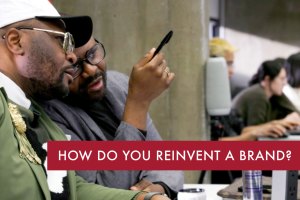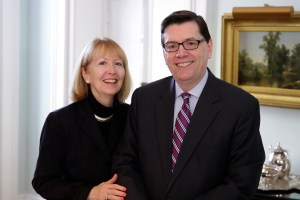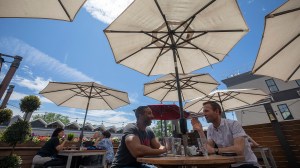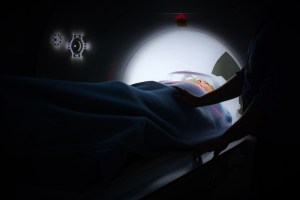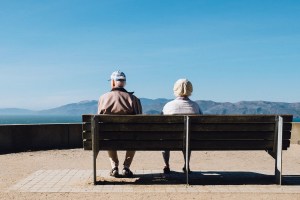Year: 2019
-
Science & Tech
A way to make Mars habitable
Researchers from Harvard University, NASA’s Jet Propulsion Lab, and the University of Edinburgh suggest that regions of the Martian surface could be made habitable with a material — silica aerogel — that would mimic Earth’s atmospheric greenhouse effect.
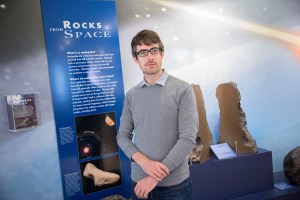
-
Campus & Community
Need a book for your beach bag?
Harvard faculty and staff members share what they’re reading this summer.

-
Science & Tech
Harvard reflects on Apollo 11 and Neil Armstrong’s moon walk
A trio of Harvard astronomers reflect on the impact of Neil Armstrong’s first steps on the moon, then and now.
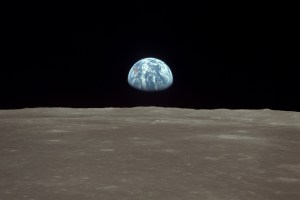
-
Science & Tech
Beneath the surface
New study debunks long-held theory that dolphins had ridged skin, which helped them swim faster.

-
Campus & Community
The first moon walk
New mini-exhibits at the Harvard Museums of Science & Culture feature lunar rocks from the Apollo 12 moon mission.
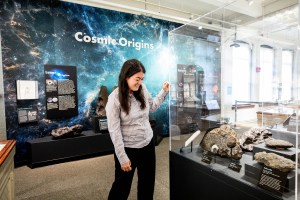
-
Health
It takes a community to make compost
Harvard’s Arnold Arboretum partners with local businesses on environmentally responsible composting program.
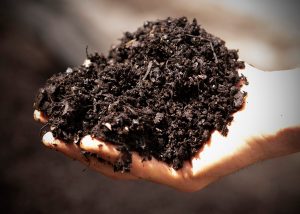
-
Health
Treating runaway health costs
Study led by Harvard researchers finds that a long-term trial of a capped-payment system encouraged preventative care and discouraged unnecessary spending
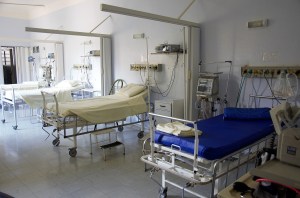
-
Science & Tech
Solving a statistical nightmare
Researchers have discovered why the North Atlantic and Northeast Pacific appeared to warm twice as much as the global average, while the Northwest Pacific cooled over several decades.

-
Work & Economy
How African American culture bred business success
A new book by Georgia professor and new Extension School grad student looks at how African American culture bred business success, and the lessons that this offers today.
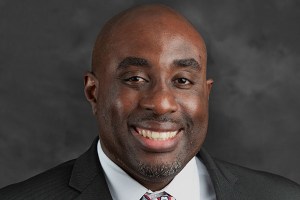
-
Campus & Community
Intensely personal, yet universal
A total of 160 classes comprise the College’s new program in General Education, which launches this fall.
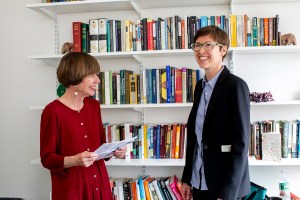
-
Health
Study finds high-risk pregnancies persist despite screening
A new study reports that although the number has decreased, women taking isotretinoin — an acne medication known to cause birth defects — have continued to get pregnant even after the implementation of special distribution restrictions.
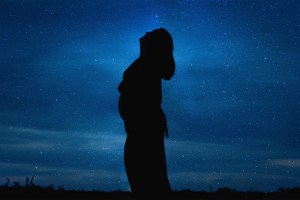
-
Campus & Community
Singing in the rain
Students from a first-year think tank led a successful effort to plant a pair of rain gardens on campus.
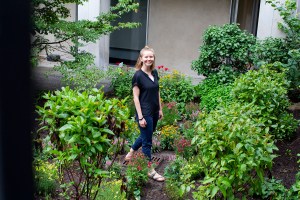
-
Nation & World
Bacow sits down with lawmakers
Larry Bacow visited the nation’s capital this week to meet with members of Congress to discuss a range of University priorities, including the effects of federal immigration policy on faculty and students at Harvard and at universities across the nation. The visit comes on the heels of a letter Bacow sent to Secretary of State…
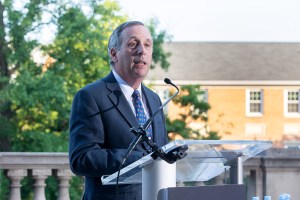
-
Science & Tech
Are we alone in the universe?
Harvard astronomer Laura Kreidberg studies the atmospheres of extrasolar planets to search for signs of life.
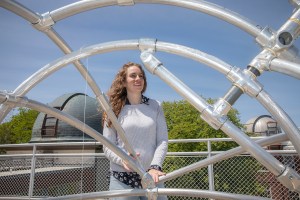
-
Campus & Community
Bloomberg Harvard City Leadership Initiative announces third class of mayors
The Bloomberg Harvard City Leadership Initiative announced the third class of 41 mayors from around the world who will participate in a yearlong education and professional development program.
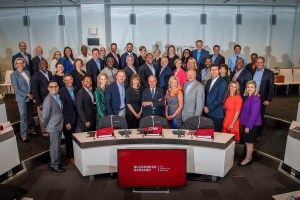
-
Health
Study: Doctor burnout costs health care system $4.6 billion a year
Physician burnout is costing the U.S. health care system an estimated $4.6 billion annually, according to new research from an international team led by a Harvard Business School researcher.
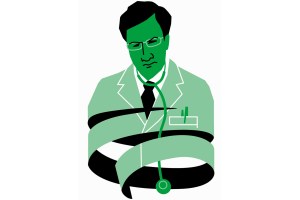
-
Campus & Community
One thing to change: Everyone should vote
Archon Fung, the Winthrop Laflin McCormack Professor of Citizenship and Self-Government, thinks about the major changes that would take place if every person in America voted.
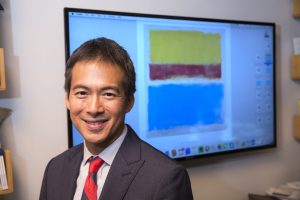
-
Science & Tech
Plague genomes show extent, diversity of massive Roman-era pandemic
New research from an interdisciplinary team of researchers shows an early plague pandemic reached post-Roman Britain and had unexpected genetic diversity.
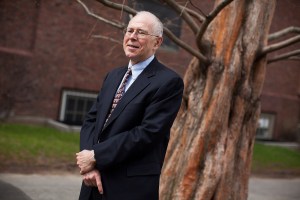
-
Work & Economy
Going West
Harvard’s Zittrain speaks at a Palo Alto silicon valley event, describing the University’s role in founding and research vis à vis technological advances – and ethical issues – in the world of computers and the proliferation of tech start-ups.
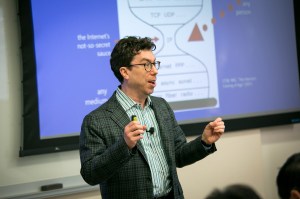
-
Arts & Culture
A colorful figure
In historian Philip Deloria’s new book, “Becoming Mary Sully: Toward an American Indian Abstract,” he re-examines the art of his “eccentric” great-aunt, particularly her 134 “personality prints,” three-panel pieces inspired, in many cases, by artists and celebrities including Babe Ruth, Gertrude Stein, and Amelia Earhart.
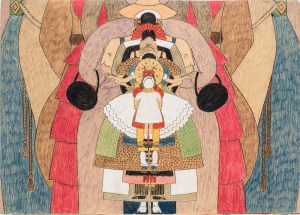
-
Health
Spare the medical resident and spoil nothing
Hours of medical residents were capped at 80 per week in 2003 after a string of patient injuries and deaths, spurring fears that doctors-in-training would be less prepared for independent practice than before. A new study suggests their warnings were largely unjustified.
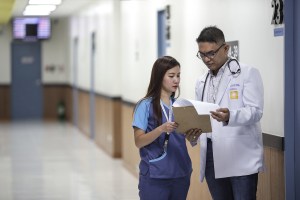
-
Science & Tech
A product idea with legs
Dakota McCoy, in collaboration with David Haig, led a group of researchers at Harvard studying the black spider and its ultrablack coat with microlenses that could lead to innovations in solar panels and sunglasses glare.
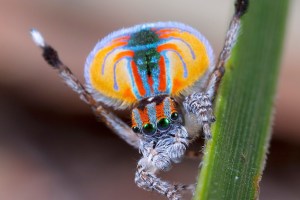
-
Nation & World
Simmer nears boil in Hong Kong
The Gazette spoke with China expert Anthony Saich, director of the Ash Center for Democratic Governance and Innovation and Daewoo Professor of International Affairs at Harvard Kennedy School, about the protests and about what the future might hold for Hong Kong.
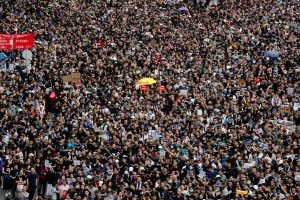
-
Science & Tech
Spreading seeds of life
Scientists at the Institute for Theory and Computation have made a comprehensive calculation suggesting that panspermia could happen, and have found that as many as 10 trillion asteroid-sized objects might exist that carry life.
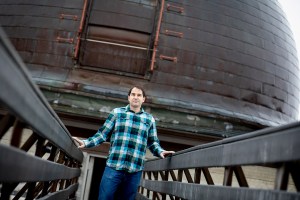
-
Science & Tech
Soft robots for all
The first soft ring oscillator gets plushy robots to roll, undulate, sort, meter liquids, and swallow.
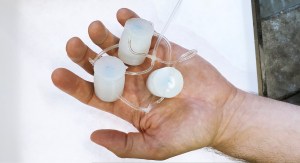
-
Science & Tech
Polarizing apposite
A portable, miniature camera that can image polarization in a single shot has potential applications in machine vision, autonomous vehicles, security, atmospheric chemistry, and more.


